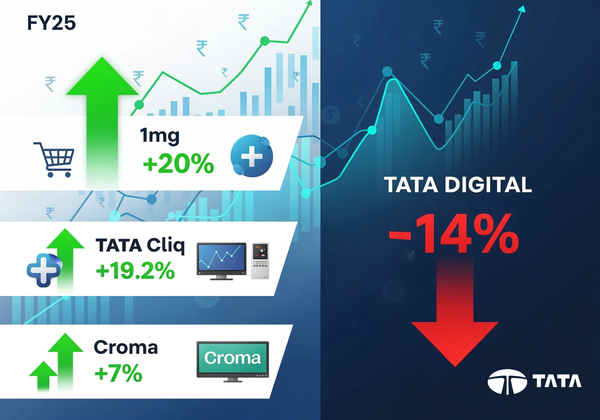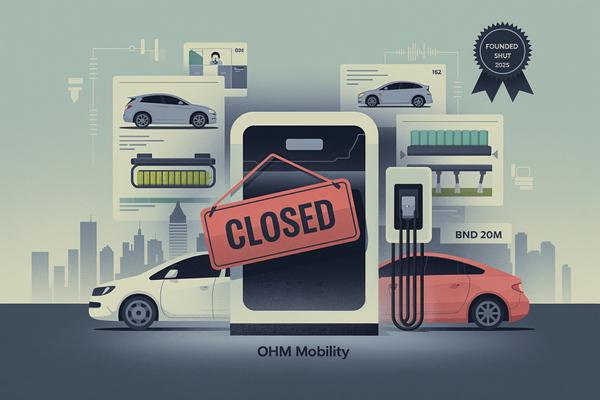The Silent Revolution: India's B2B Fintech Odyssey
In the midst of the busy streets of India's financial sector, we can observe quite a silent yet profound change. Whereas traders are busy talking about consumer fintech applications due to their easy-on-the-eye interfaces and a rapidly-growing user base, a greater and more significant shift is occurring off the limelight– the B2B fintech realm.
Think about the interwoven structure of supply chains, the efficient organization of trade finance, and the stringent requirements of regulatory compliance. These are the battlegrounds on which B2B fintech platforms are implementing their strategies, thus, going fully digital, introducing faster workflows, reducing high volume transactions and compliance being as essential as oxygen in the lungs of the business.
This quiet revolution is not only about cutting the fat; it's about the total restructuring of the Indian financial system's infrastructure as well.
The Pillars of Transformation
These three pillars are the key to this transformation:
- Dependability:
In the arena of digital lending, especially in the case of MSMEs, the speed offered is very attractive, but the most essential aspect is the accurate evaluation of the risk involved. Hence, now platforms are going into this deeply, evaluating business profiles very comprehensively, including such areas as cash flows, receivables, and vendor relationships capability, in order to guarantee effective management of risk.
This has given birth to Agentic AI tools that are now playing the part of being very efficient and able to process in a very short time regulatory underwriting that is completely compliant for the sake of bridging the crediting gaps and of course, trustworthy in the face of the regulatory body.
- Inclusion:
The inherited systems that are mostly from the past are no longer modern. It is no longer sufficient to just go for radical transformation, instead, turning to microservices and architectures that are based on the cloud gives an opportunity to be real-time with the upgrades, the system will also allow for the communication of two or more technologies to build new applications and finally, the system will be able to grow without repair or replacement. This kind of system can then guarantee itself as a flexible, responsive and self-sustaining one.
- Compliance:
India's regulatory landscape is a multitude of diverse needs. B2B fintech platforms are creatively solving the problem by coming up with tailored solutions that meet the uniqueness of this market. RegTech has moved from being just an extra part to being a necessary feature of the financial industry, thereby automating KYC processes, continual regulatory observation, and reporting to meet the changing regulations.
Emerging Horizons
The horizon is filled with a lot of potential areas:
- SME Platforms: A variety of solutions are required to help MSMEs in the digital era to collect digital payments, borrow money, and manage wages efficiently. Integrating Gen AI workflows with the digital public infrastructure like GSTN and UPI enables the realization of the scalable value
- Embedded Finance: Wan open OTP net like ONDC is digital networks that expand more and it can be and fuel for the integration of fintech tools into the procurement, HRMS, or logistics workflows, which, in turn, can unlock the network effect and add transaction relevance of the whole system with use cases.
- Cross-Border Finance: The global marketplace has seen significant shifts as startups are now at the forefront of the process of simplifying the payment systems, making international trade funds available, processing the tax system, and identifying the risk. All of these have led to new startup companies, even young ones and have renewed business with customer chains that extend to India with their global partners who are even more satisfied than before.
- AI-Powered Decision Support: The reality is that mid-to-large enterprises can find a lot of support from the tools that will help them make decisions which are driven by AI. In addition, these tools will enable these companies to engage effectively with customers, keep low costs; we will help our customers find the best management and staff strategy and give us good feedback etc.
The Road Ahead
In the future of B2B fintech in India, the platforms that place reliability, seamless integration, and rigorous compliance on the top of the list will dictate the tone of the industry. Indeed, the concentration from mere growth figures has totally shifted towards the delivery of predictable ROI, regulatory resilience as well as a minimal switching barrier that goes with it.
As the current scenario is changing, the winners of tomorrow will be those entrepreneurs who can skillfully design and deliver their work with precision, focus and confidence, and while doing so, directly look the nooks and crannies of the sales cycle without losing their purpose.
The covert revolution of technology is taking the first steps in the state of being and the impact it has is going to be profound and show in the landscape of India’s financial ecosystem for a couple of decades ahead.









Member discussion